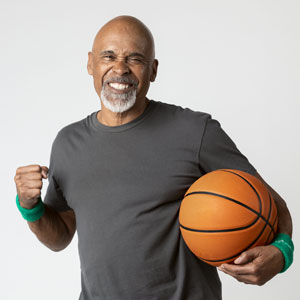 Am I old or just getting older?
Am I old or just getting older?
When researchers at the Pew Research Center asked this of almost 3,000 adults ranging in age from 18 to well over 65, the answers were just what you are probably thinking … It depends on who you ask.
If you average all the responses together, old age begins at 68. However, the average answer from those under 30 is that old age begins before people celebrate their 60th birthday! It is no surprise that the older people get, the older they think it takes for a person to reach old age. People between 50 and 64 believe old age starts at 72 and those who are 65 years of age and older say old age begins at 74. Among those who were 65 to 74, only 21% said they feel old. Of those 75 and older, only 35% said they feel old. I guess it is true: you are as young as you feel, despite your chronological age.
Is 75 the new 65?
Measured chronologically, we all age at the same rate – one year every year. But aging is related to our sense of impending mortality (or end of life). Chronological aging is often accompanied by declines in physical and mental capabilities. Psychological aging is how we conduct our lives, and how we focus on our most emotionally meaningful relations and activities.
In the 20th century, life expectancy increased by about 10 years for each generation. A 75-year-old today has the same mortality rate as a 65-year-old in 1950. Over the same period, the average age of the US population has increased from around 32 to 38 and the average mortality rate has fallen by 13%.
Today, the average US citizen has never been older and has never had so long left to live. In effect, we are younger for longer!
This increase in life expectancy has also changed the way the earlier phases of the lifecycle are experienced. Adolescence now extends well into one’s 20s. Young adulthood means exploration and discovery, free from traditional grown-up responsibilities such as marriage and parenthood.
New Thinking About Life Stages
Shouldn’t then, the 40s and 50s become a time of reinvention and rediscovery in anticipation of a longer second half of life? If we are healthy in our 70s and 80s, should this be a time of more work, more community engagement, and greater leisure and play?
In this “new old age” phase, healthy individuals will have a longer time to recreate their identities, take advantage of new opportunities, and reconcile to past mistakes or misfortunes. The challenge about aging actively is diversity. Having and seizing opportunities for activities, both physical and mental, will mean a more gratifying and fulfilling lifestyle well into chronological old age.
It may be necessary and prudent to downsize from the family home into a new residence that is easier to take care of, and senior communities may be an attractive option. Communal living offers many activities both on-site and off in the form of trips to events, museums, parks, or shopping. Recreation directors plan and schedule daily activities to engage different interests. Apartments are fitted with personal furniture and décor and are designed to be more home than institution. Everything from sports, movies, visiting entertainers, games, dancing, lectures, lessons, workshops, and much more are offered by the forward-thinking senior communities that understand that old age is just a number.
If you’d like information about the steps to take to transition from your family home to a senior community, email or call Marie LeBlanc at Transitions Liquidation Services at 617-513-0433.
